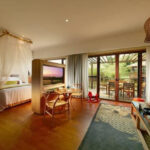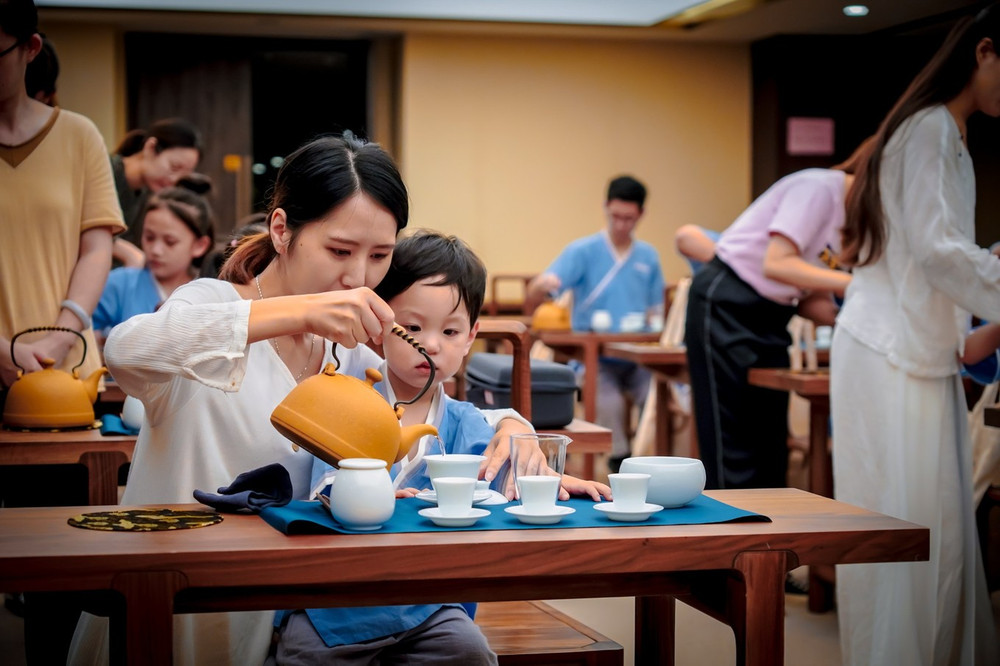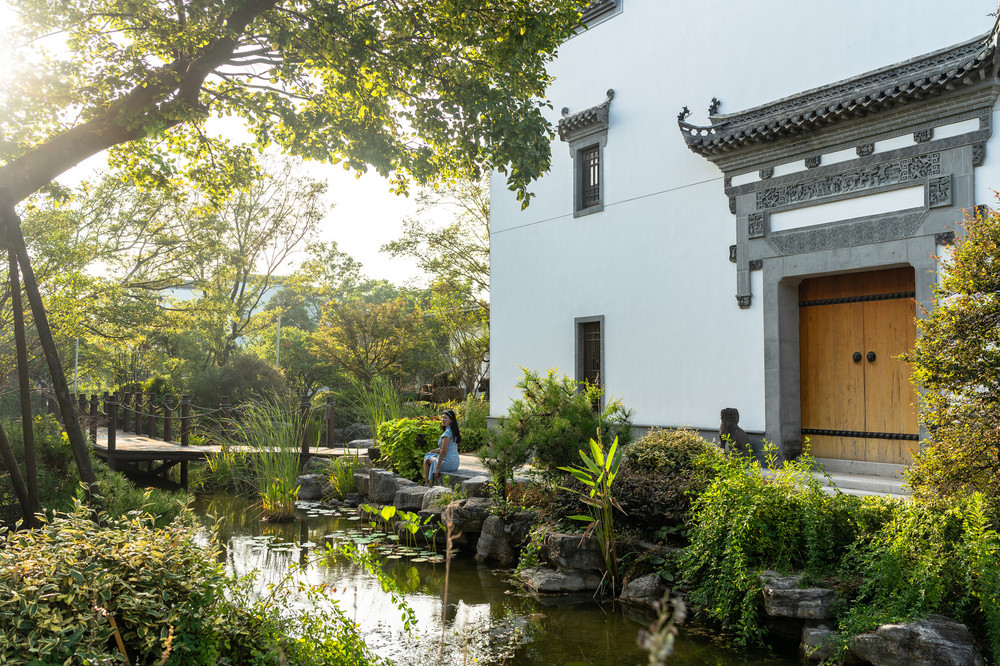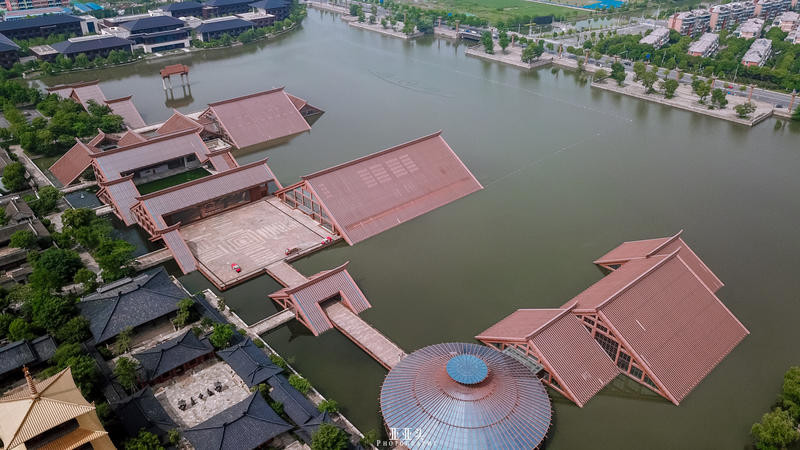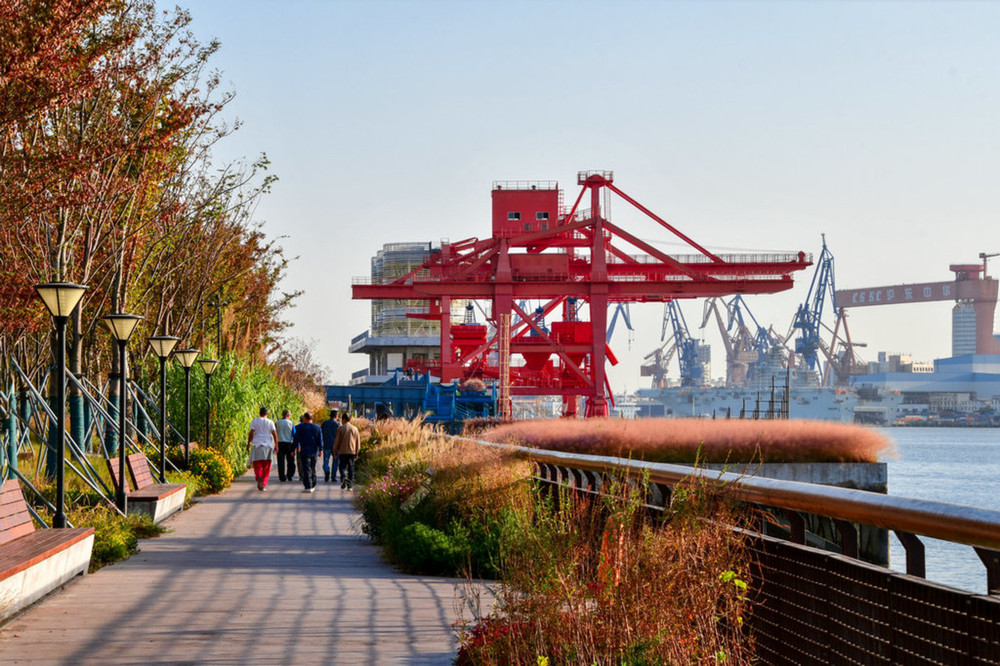**Trip to Zhujiajiao: A Cultural Exploration and Relaxing Getaway**

**Duration:** 2 days
**Time:** June
**Cost per person:** 600 yuan
**Companions:** Family members
**Activities:** Cultural exploration, free and easy travel, weekend getaway
**Visited Places:**
– Zhujiajiao
– Dongfang Green Boat
– People’s Square
– Fangsheng Bridge
– City God Temple
– Daqing Post Office
– Kezhi Garden
– First Line Street
**Published on:** 2020-06-19 at 16:11
**Zhujiajiao: A Favorite Ancient Town**
Zhujiajiao is probably one of the most favored ancient towns by the people of Shanghai. Located within the city, it boasts a long history and a plethora of attractions and dining options. Nearby, there is the established family entertainment venue, Dongfang Green Boat. Although it may not be as renowned as Xitang or Wuzhen, it is relatively less crowded and peaceful. Spending a weekend here, wandering and strolling, is an excellent way to unwind and reset.
**Transportation:**
– **Self-driving:** The most convenient way to get to Zhujiajiao. Follow the navigation and exit at Zhujiajiao on A9 via Yan’an Road Elevated, or along the 318 National Road, then turn into Xiangningbang Road upon reaching Zhujiajiao.
– **Public transportation:** There is no direct subway access. The best option is to take a coach from the parking spot under Yan’an East Road Elevated at People’s Square.
**Spontaneous Family Outing**
Visiting Zhujiajiao was a spontaneous decision. With children studying at home, opportunities for family trips are rare, mostly limited to winter and summer vacations and weekends. This weekend outing was fortunate as it coincided with a regatta and night market, making it much livelier than usual.
**Day 1: Zhuli Jusha – Ancient Town – Rooftop Dinner**
The accommodation was at the Zhuli Jusha Hot Spring Hotel, located within the ancient town, with an exceptional geographical location, adjacent to the ancient canal, and a 2-minute walk from the Fangsheng Bridge, making it very convenient. You can explore the ancient town whenever you want, and it’s fine to stay out late.
**Zhuli Jusha Hot Spring Hotel: A Japanese-Inspired Retreat**
The entrance is unassuming, perhaps in line with the style of Jusha, and you might easily miss it. There is a security access system; you enter with a card, ensuring good privacy and safety. The rooms are key-operated, so remember to lock the door.
Upon entering, you are greeted by a Japanese rock garden style courtyard, featuring a small Buddhist shrine. White crushed stones are laid out on the ground, complemented by neatly stacked stones forming a miniature garden landscape. The ‘water’ in a rock garden is typically represented by sand and stones, sometimes with patterns drawn on the sand to depict the flow of water. The ‘mountains’ are usually represented by stone blocks.
If you change into a yukata, you can take a series of beautiful photos pretending to be in Japan, which is quite nice. Zhuli Jusha is another creation of Jusha. ‘Zhuli’ is derived from the ancient name of Zhujiajiao, and ‘Jusha’ comes from the ‘Abhidharma-kosa’ by Vasubandhu, an ancient Indian word ‘kosa’ translated into Chinese, meaning a vessel for the body and the soul. Here, you can enjoy the relaxation of both body and soul, allowing you to temporarily leave behind the hustle and bustle of the mundane world and return to the past.
The lobby features various decorations and handcrafted items, each exquisite, with some artifacts for sale; if interested, you can inquire about the prices. There is a tea house and a space for copying scriptures and writing, and sometimes there are events, so you might be lucky enough to encounter one. The corridors are slightly lower than elsewhere, giving a more authentic Japanese ambiance. Inside, there is also a small courtyard. Our room on the third floor is named ‘Aoi’, with others named ‘Tong’ and so on, easily evoking associations with ‘The Tale of Genji’. Those who appreciate Japanese culture should quickly grasp the subtleties within.
**Nude Bathing and Travel Essentials**
Remember that this is a nude bathing spot, so there’s no need to bring a swimsuit. The rooms and the external environment are coherent, with bamboo screens for partitions, tatami mats, bubble tea, and some small snacks, making the experience great. As soon as my husband entered, he started to groom himself, saying he was in a hurry when I pulled him out and wanted to shave before soaking in the**A Travelogue of Convenience and Comfort**
_The便携性 of a Travel Razor_
Carrying it in a bag is a breeze, without occupying much space or causing any damage to the bag or hygiene concerns. It aligns perfectly with the Zen essence of our journey. My husband is particularly fond of its five-blade system, which he describes as ‘substantial’. A single shave with this razor rivals the effect of several with other razors, leaving no stubble behind. The small ball under the razor head is capable of moving in all directions, ensuring not a single corner of my husband’s square face is missed. Its smooth and convenient operation saves a significant amount of time in the morning, making it ideal for travel or business trips. It also includes a dual-purpose foam and cleanser, which can be used both as shaving cream and to cleanse oily skin—a godsend as the Dragon Boat Festival approaches and the weather heats up, leading to increased facial oiliness. It deep cleans the skin while shaving, reducing oiliness. My husband mentioned that his colleague’s face has remained refreshing all day since he started using it. Cleaning is a breeze compared to a three-circle electric razor; a simple rinse with water removes the beard residue. After his grooming, we enjoyed a soak together.
_The Soaking Experience at Zhuli Jusha_
Note that soaking times vary between weekdays and weekends, with morning, afternoon, and evening sessions. Zhuli Jusha has introduced the Japanese hot spring culture, allowing you to soak while enjoying the beauty of the courtyard. Facilities include changing rooms, bathing rooms, and a dry sauna. The authentic experience begins with rinsing your body before soaking. My daughter loved it, finding it so comfortable she didn’t want to leave. She carefully read the soaking instructions, ensuring we followed them correctly.
_Exploring Zhujiajiao_
After soaking, we strolled around. Next to the facility is the Fangsheng Bridge, with boats for cruising and a rowing club, and an abundance of food options. You can still have a great time without crossing the bridge. The main attractions of Zhujiajiao include the City God Temple, the Great Qing Post Office, Yuanjin Zen Temple, Kezhi Garden, and Yixian Street. Unfortunately, Yuanjin Zen Temple and the City God Temple are currently under renovation and closed to visitors. The rest remain open for those interested. I usually take a boat when visiting this water town, but this time, I opted to walk along the river to capture photos.
_Food and Culture in Zhujiajiao_
With children in tow, we captured various moments. Like other water towns, Zhujiajiao has many branching paths, and one can easily wander off course. The town is rich in food options, so dining is never a concern. Particularly famous is the local ‘Apo Zongzi’ (Grandma’s Rice Dumplings), a must-try. As the Dragon Boat Festival approaches, every rice dumpling shop is bustling, with dumplings made to order and filled with generous portions of meat. Another local specialty is ‘Xun La Si’, originating from Qingpu and rarely seen elsewhere, making it a must-try. In the evening, the Fangsheng Bridge offers a panoramic view of the breathtaking sunset. We had a dinner reservation on the terrace of Xuanhe Li Boutique Hotel, where maintaining a romantic atmosphere is important even when traveling with children. The terrace, a small garden with seasonal hydrangeas in full bloom, is the highest viewing point in the ancient town. Opening a bottle of sparkling wine and enjoying a candlelit dinner was highly satisfactory. After dinner, we strolled through the newly opened night market, offering specialty rice wine beverages, almost non-alcoholic and best chilled, along with various local products and handmade crafts. The night view is stunning.
_The Next Day in Zhujiajiao_
The next morning, we enjoyed breakfast on the hotel’s second floor. Each room had a guide with a sign, and meals were served as set meals. There was salmon and Oden, both of which I enjoyed. Surprisingly, there were more people on Sunday than on Saturday, so we changed our route towards Yuanjin Zen Temple, finding fewer crowds. Experience has taught us that occasionally taking the popular path can also be an experience. This is the tranquility a water town should have. There are also many shops along the river, offering various foods at prices that are quite normal considering Shanghai’s standards. It’s a good spot for an afternoon sit. The Hanfu rental styles here are not very appealing, so those who like to wear them are advised to bring their own for photos. I truly envy the residents of this ancient town. Our two-day journey ended quickly, and we’re already planning another trip for the Dragon Boat Festival.



